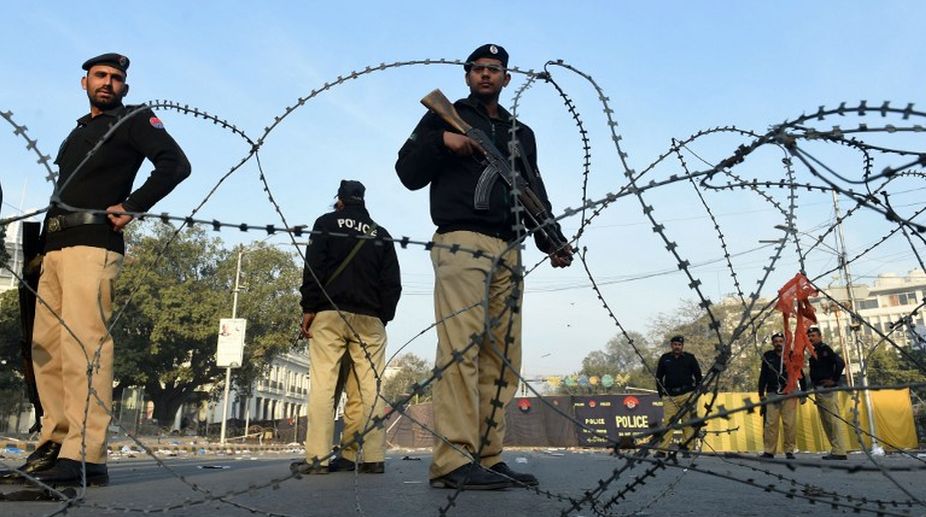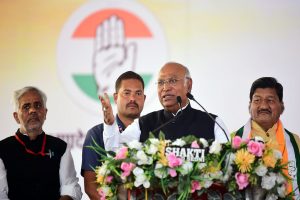A military court in Pakistan has sentenced to death a former Indian Navy officer, Kulbhushan Jadhav, for espionage and subversive activities. In a sharp reaction, India has said that if the execution takes place, it would be regarded as a case of “pre-medictated murder.”
Jadhav’s case brings into sharp focus the functioning of military courts in Pakistan. In a strongly-worded statement, Amnesty International has described these courts as an “inherently abusive system that rides roughshod over international standards.”
In 2015, Pakistan’s Parliament had legalized military court trials of terror suspects for a period of two years. This happened in the wake of the terrorist attack on an Army Public School (APS) in Peshawar, resulting in the killing of 144 people, mostly children.
The 21st Amendment to the Constitution, which created the military courts, was initially viewed with skepticism and was opposed by different parties. The Constitutional Amendment permitted the Pakistan Army Act (PAA) to extend its jurisdiction for speedy trial of cases for specified acts, and provided a constitutional cover with a sunset clause of two years from its date of enactment.
However, the military courts, gradually, have firmly entrenched themselves in Pakistan’s criminal justice system. Pakistan’s Supreme Court approved the previous Constitutional Amendment in August 2015, deeming it to be within the purview of Parliament to amend the law so long as military trials were subject to judicial review.
An article in Dawn (21 February 2017) by Reema Omer states that since February 2015, a total of 274 individuals have been convicted in military courts. So far, the army has sentenced 161 individuals to death, twelve of whom have been executed and 169 have been given jail terms, mostly life sentences.
There are about eleven military courts that have been set up across Pakistan ~ three in Khyber Pakhtoonwaha (KP), three in Punjab, two in Sindh and one in Baluchistan. The Pakistan Army has claimed that the cases were dealt with in accordance with the due process of law in the military courts, and such trials have had a positive effect on curbing terrorist activities.
Both these claims do not stand scrutiny. Human Rights groups and legal experts have documented, in detail, how military trials of civilian terrorism suspects, pursuant to the 21st Amendment, have fallen far short of due processes. in restraining terrorist violence.
The fact that cases pile up in the courts of law has emboldened the terrorists. Some of the offences for which military courts can try civilians are: attacking military officers or installations; kidnapping for ransom; possessing and storing explosives and firearms, creating terror and insecurity in Pakistan and waging war against the State.
However, trials in the military courts are far from transparent, and very often they are not fair. Normally judges have a duty to explain the reasoning behind their verdicts. But in many cases, this is not being done. Families of the military court convicts remain ignorant of the essential findings of the cases since the trials are closed to the families of the accused.
Even the National Commission for Human Rights in Pakistan was not given access to observe the trials. Moreover, the suspects are often defended by military officers and not civilian lawyers. The army takes the plea that the accused persons often willingly forego their right to engage civilian lawyers.
It strains credulity to accept such a claim. One of the cornerstones of a fair trial is the provision of providing the accused with a detailed judgment at the conclusion of the trial. There is no guarantee that such a document will be made available by military courts.
The confession rate in the military courts is also very high. According to a statement issued by ISPF (media wing of the army), 135 out of 144 people convicted have confessed to the charges. This confession rate of more than 90 per cent is disturbing and raises the suspicion that confessions are often obtained through questionable and coercive methods.
The International Commission of Jurists (ICJ), in a briefing paper published in 2016, held that the Pakistani government and military authorities have failed to make the trials in the courts, fair and transparent. The right to appeal is the essential component of a free and fair trial.
Military court convicts do not enjoy the option to appeal in civilian courts. According to the Pakistan Army Act (PAA), those convicted by military courts can only appeal in the military appellate tribunals.
However, convicts can have decisions of military courts reviewed by civilian courts under the PAA. Indeed, reinstating military courts, according to Human Rights Watch, would violate Pakistan’s international human rights obligations. Article 14 of the International Covenant on Civilian Political Rights, which Pakistan ratified in 2010, guarantees to everybody the right to timely trial by a competent, independent and impartial tribunal.
The Human Rights Committee, an international expert body authorized to monitor compliance with the Covenant, stated that civilians should be tried by military courts only under “exceptional circumstances that generally afford full due process.”
The claim that the military courts have been instrumental in reducing the threat of terrorism is unsustainable. Terrorist violence in Pakistan is going on unabated. Very often, innocent civilians are the targets. The contention that terrorists were incapacitated from carrying out further attacks because of speedy trial and conviction in military courts is difficult to sustain.
Military courts have convicted people whose cases were pending in ordinary criminal courts, or antiterrorism courts and transferred to them for trial. People have been detained at interrogation centres under FATA (Federally Administered Territorial Areas) and other undisclosed locations.
A dispassionate assessment of the performance of the courts would show that they have been instrumental in wanton violation of human rights and subversion of the rule of law in Pakistan. Terrorism in this country is the creation of the Army, which has been nurturing many of the militant groups.
They have served to help the army to further strengthen its position in the country and thus weaken the criminal justice system. Indeed, the 21st Amendment to the Constitution has been a failure but the Government, under the pressure of the army, has acquiesced in the continuation of the military courts for another two years.
Indeed, Pakistan is the only country in South Asia to allow the military to try civilians. Denying citizens a fair trial is not the way to solve Pakistan’s complex security challenges. The proper response to militant activities is to strengthen the civilian courts and uphold the rule of law.
The writer, senior fellow of the Institute of Social Sciences, had served as Director-General, National Human Rights Commission, and of the National Police Academy.











